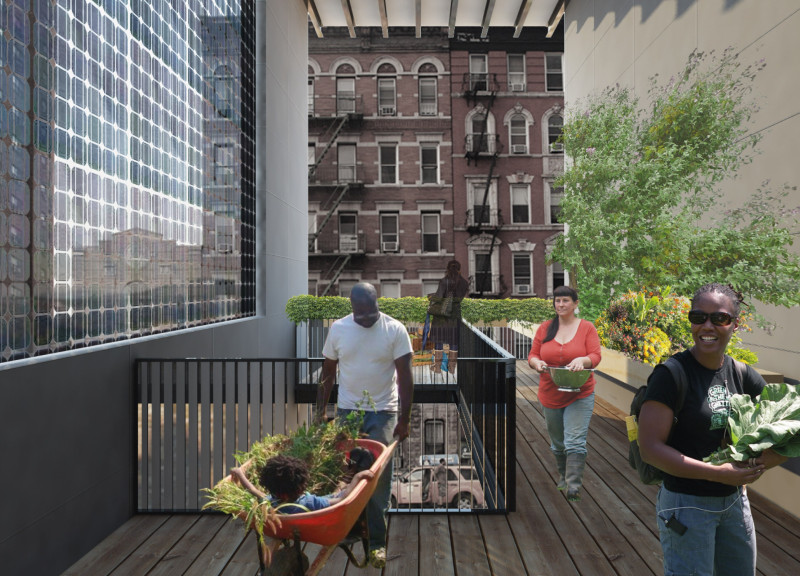5 key facts about this project
"Veggie Blocks" is an innovative structure designed to bring sustainable living into an urban setting. It focuses on providing affordable housing while encouraging community bonding through gardening. Located in a densely populated area, the design aims to create a space where residents can not only live but also grow their own food, emphasizing health and environmental awareness.
Vertical Gardens
The design features vertical gardens that allow residents to cultivate their own fruits and vegetables. This approach creates a productive and engaging living environment. The layout includes various apartment types within a 20-story tower and a 6- to 9-story mid-rise. This mix provides choices for different household sizes and encourages interaction among residents, fostering a sense of belonging.
Communal Spaces
A key part of Veggie Blocks is the communal areas, especially the open stairway. This space serves as an escape route in emergencies and lets in plenty of natural light. Opening to multiple sides, it enhances the quality of life for residents. This stairway connects all levels of the building, creating opportunities for residents to meet and interact, which supports a community-oriented atmosphere.
Roof Garden
At the top of the building is a roof garden that serves dual purposes. It offers a place for relaxation and enjoyment while also addressing practical needs like stormwater management and energy savings. This garden increases biodiversity, reinforcing the bond between urban life and nature. It acts as a natural retreat for the community to gather and take in fresh air.
Materials
The project utilizes mortared stone and cinder blocks for construction. These materials are selected for their durability and thermal properties. Additionally, the colors of the facade draw inspiration from vegetables, connecting the architecture to the surrounding gardens. This choice enriches the visual relationship between the building and its green components.
Veggie Blocks represents a thoughtful blend of living space and sustainable practices. By integrating gardening into everyday life, it allows residents to enjoy a healthy and community-focused lifestyle within the city. The presence of gardens fosters not only food production but also a deeper connection between people and their environment.


























